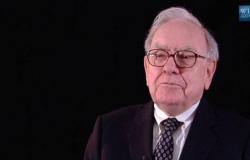“I have all the patience in the world. For those who have already lived with Roberto Campos Neto for a year and four months, there is no problem living for another six months”, declared President Lula (PT) this Tuesday (23) during coffee with journalists in Brasília. The president was referring to the end of Campos Neto’s mandate at the head of the Central Bank, which ends at the end of this year, and that he does not intend to anticipate the appointment he will make regarding his replacement.
“I have to nominate more directors and I have to nominate the president of the Central Bank by the end of the year. I just have to decide whether to bring it forward or leave it until the end of the term,” said Lula, remaining mysterious.
In any case, as discovered and anticipated by journalist Renato Rovai, on the Forum Onze e Meia program on TV Fórum that aired this same Tuesday, the main name mentioned to preside over the BC from 2025 is Gabriel Galípolo, the former -number 2 of the Ministry of Finance who, appointed by Minister Fernando Haddad, now holds the position of director at the Central Bank.
Campos Neto is the first president of the Central Bank after the law that determines the institution’s autonomy was approved. According to the text, the terms of office of BC presidents are four years, but they do not coincide with the periods for the presidents of the Republic. On the contrary, the objective is for each elected president to work for two years with the BC president appointed by his predecessor and then appoint him.
The spree of the Bolsonaro years
In this context, still in 2018, the then-elected president Jair Bolsonaro (PSL; current PL) announced the name of Campos Neto for the BC. The ultra-liberal Bolsonarist took office in 2019, replacing Ilan Goldfajn, still in the institution’s former regime, and his term as ‘autonomous’ president began in 2021.
Still in 2020, Pix was launched, which increased the popularity of the then new BC president. However, his mandate was marked by controversies.
In 2021 he was mentioned in Pandora Papers alongside Paulo Guedes, the then Minister of Economy. They would have interests in offshore companies located in Panama, a recognized tax haven. And although maintaining these companies is not illegal in itself, a possible conflict of interest with the situation was questioned. It’s time, experts in tax law said there was a possibility that Campos Neto and Guedes made decisions through the National Monetary Council considered harmful to the Brazilian economy and beneficial to their businesses.
According to Pandora Papers, Campos Neto is the owner of Cor Assets, founded in 2004 in Panama. In 2019, Guedes maintained a company Dreadnoughts International Group, registered in the British Virgin Islands, in which his daughter, Paula, appeared as a shareholder. In a public hearing at the Chamber, Campos Neto only stated that he has offshore companies because of reduced taxation and that the investments have been declared by him since he assumed the presidency of the BC.
Last year, he filed a lawsuit to suspend investigations by the Public Ethics Commission of the Presidency of the Republic into the case.
After the financial binge of the Bolsonaro years, in January 2023, as soon as Lula took office, the Central Bank announced the extraordinary review of the foreign exchange market contracted from October 2021 to December 2022. The error in compiling the data was confirmed and, With the review, it was discovered that instead of 9 billion dollars entering the BC accounts, there was, in fact, an outflow of just over 3 billion. At the time Fernando Rocha, the head of the BC Statistics Department, publicly apologized for the error.
For Lucas Rocha Furtado, deputy attorney general of the Federal Court of Auditors, “the error in question was a billion-dollar one, occurring in the midst of a fierce electoral dispute and adds uncertainty and mistrust to the Brazilian market, which was going through difficult times”.
Interest rates
It was also during the Campos Neto administration that the basic interest rate, the Selic, reached the level of 13.75%, blocking the economy of Brazilian families, including middle class families who were looking for credit to open businesses.
At first, the BC maintained that the high interest rate was necessary due to the supposed high inflation. But after the first six months of Lula’s government, Brazil improved its economic indicators, registering a drop in inflation, growth in the Gross Domestic Product (GDP), appreciation of the real and an increase in the outlook for credit ratings on the international stage. It was the cue for the Selic to fall for the first time in 3 years in August 2023. Since then there have been several successive falls and the prospect of ending 2024 below 9%.
“More than anything, having the highest interest rate in the world indicates the lack of coherence of the Brazilian Central Bank, which keeps rates high when the country is far from being the one with the highest inflation in the world. This could have already been done at the beginning of the year, and there were already clear conditions. Unfortunately, the Central Bank insisted on a perspective that Brazilian inflation was out of control, with a tendency to accelerate”economist Marcelo Manzano, doctor in economic development and professor at Unicamp, said at the time for the Fórum report.
The economist also pointed out that the drop in interest rates could mean billion-dollar savings for the federal government: “Another aspect that we cannot forget is that ultimately it is the government who pays the cost of the Selic rate. 0.5% less could mean savings of almost R$20 billion. The government will be able to stop spending this amount.”
And this explains the disputes between the Lula Government and the BC of Campos Neto, over the last 1 year and 4 months, around the basic interest rate. The government defends more public investments to help the population that went through a severe crisis generated by the policies in favor of the financial market employed by Campos Neto and Guedes. On the other hand, ultraliberal Bolsonarists resorted to the discourse of “fiscal responsibility” to demand that the government honor, first and foremost, its obligations to speculators and rentiers.
The last breath
It seems that Campos Neto’s last breaths as president of the Central Bank should continue to renew the debate over interest rates, but with less intensity. According to an article in Folha, Campos Neto’s main concern at the moment is with the transition that will be carried out at the institution.
The president of the BC would like Lula to nominate Galípolo, or any other name, between October and November so that there is enough time for the future president to undergo hearings in the National Congress before the end of the year.
But the clashes continue. If on the one hand Campos Neto continues giving his lectures and keeping the Selic rate at levels that the government considers high (10.75%), on the other hand, at this Tuesday’s coffee with journalists, Lula once again criticized the topic.
“The market is making a lot of money with this interest rate. This needs to be clear to society. And the president of the Central Bank has to know that those who lose money with this high interest rate are the Brazilian people, it is the Brazilian businesspeople who cannot find money to invest. That’s what’s at stake.”






